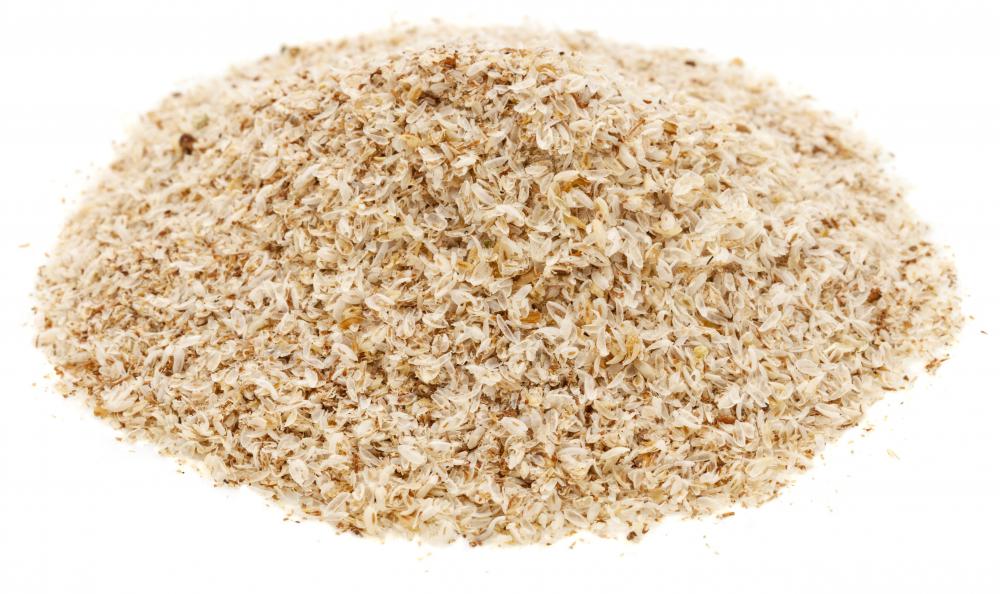At WiseGEEK, we're committed to delivering accurate, trustworthy information. Our expert-authored content is rigorously fact-checked and sourced from credible authorities. Discover how we uphold the highest standards in providing you with reliable knowledge.
What are the Most Common Psyllium Benefits?
Psyllium is a type of seed that grows on the plant Plantago psyllium, which is found in the Middle East. Some people ingest the husk, or outside of the seed, as a form of fiber. It has a very high fiber count compared to other types of grains or foods. Some of the most common psyllium benefits include regular bowel movements, reduced bloating, internal cleansing, reduced cholesterol and reduced flatulence.
The husk part of psyllium is nearly all fiber, so it is an excellent way to regulate the digestive system. Fiber is a necessary part of a healthy diet. It pushes food through the colon quickly and makes the stool bulky and soft. If regular bowel movements do not occur daily, a person could develop constipation or diarrhea.

A high-fiber diet also lowers cholesterol by cleaning out fat in the body. There are two types of cholesterol: high-density lipoprotein (HDL) and low-density lipoproteins (LDL). LDL is the "bad" cholesterol that is lowered by fiber. Eating psyllium husks, along with a low-fat diet, is a good way for one to stay healthy.
One side effect of a high-fiber diet is weight loss. People who desire to lose fat can benefit from eating more fiber, because it fills up the stomach and reduces hunger pangs. Fiber also lowers a person's blood sugar level. High blood sugar levels are related to weight gain and appetite. Replacing calories with fiber is an easy way to reap all of these psyllium benefits.

Other psyllium benefits include reduced flatulence and bloating. It keeps food moving through the system instead of allowing it to stagnate in the bowels and cause issues. Psyllium must be ingested with plenty of water, because if no water is consumed, the husks can cause cramps and constipation. Adults should drink six to eight glasses of water every day, especially if they eat psyllium husks or other high-fiber foods.

Some people are allergic to psyllium and should never eat the husks. People who have this allergy go into anaphylactic shock if they ingest any psyllium particles. People who have diverticulosis of the colon also must avoid psyllium, because the tiny husks can get stuck in the folds of the intestines. Those who have had recent intestinal surgery also must stay away from psyllium.
When starting to take psyllium, one should must start with small doses. If there are no side effects, it is fine to increase the dosage. It might take several weeks, however, to work up to a regular dose and gain all of the desired psyllium benefits.
AS FEATURED ON:
AS FEATURED ON:













Discuss this Article
Post your comments